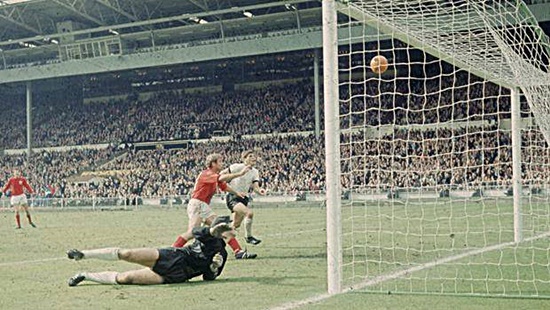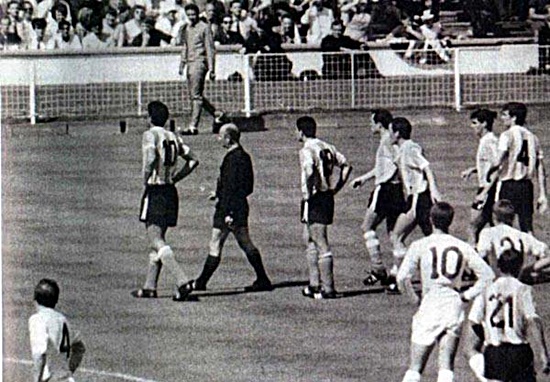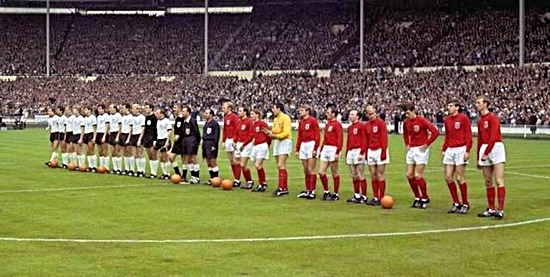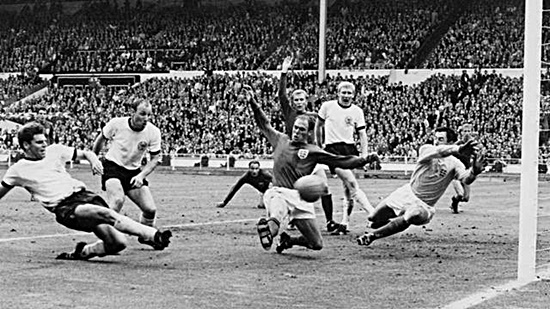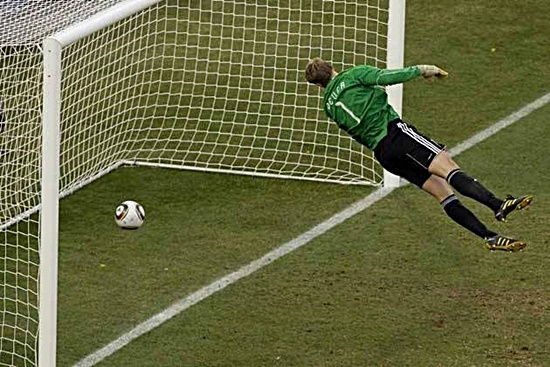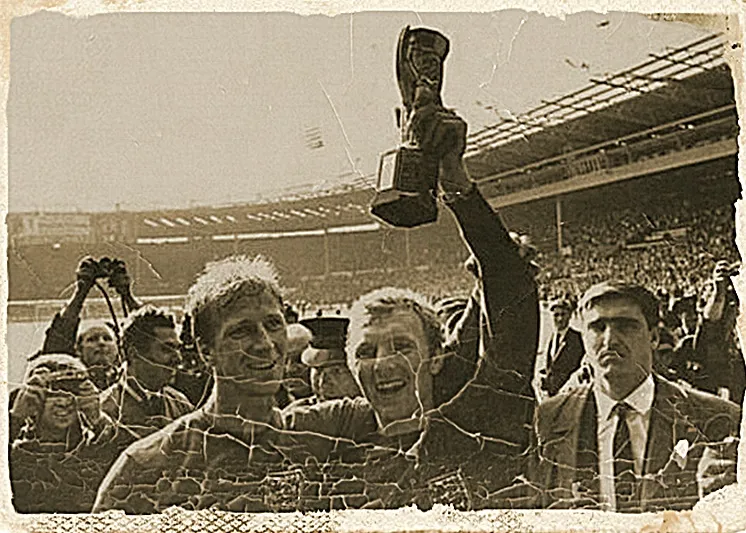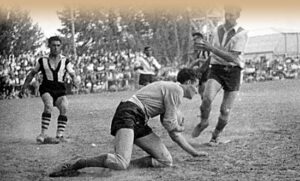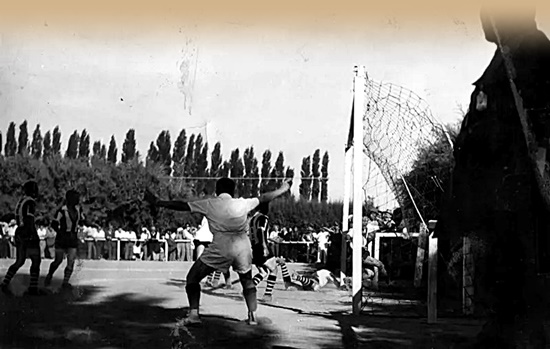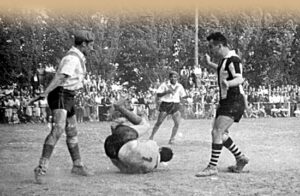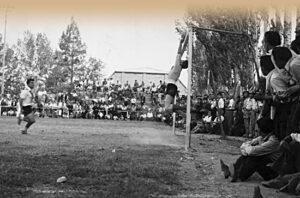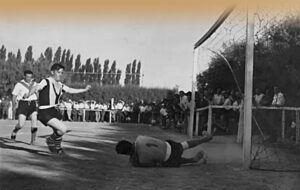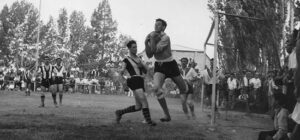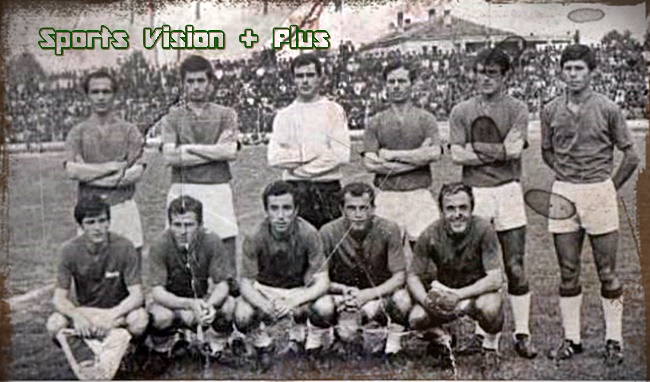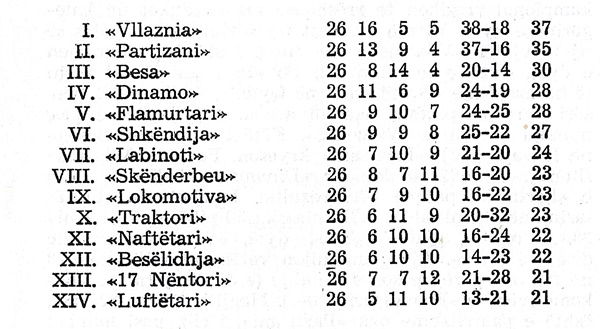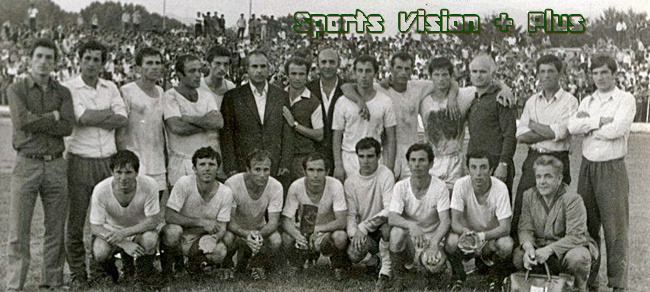THE HISTORY OF CHAMPIONS WITHOUT SIMILARITY TO ONE ANOTHER!
The 1986-1987, seson of the National Championship.Partizani - 17 Nentori has always been a challenge, a big match, a noisy clash before and after their meeting.
A match where anything could happen, apart from the controversies, it unfolded a duel between strong rivals, a fighting football in a real battle in the presence of thousands of fans of these two teams who undoubtedly made history in their journey during the National Championships and Rrepublic`s Cup .
Such was also the match of November 23, 1986, which took place strangely in the "Dinamo" stadium of the capital. The reason why it was not played in the National Stadium "Qemal Stafa", will probably never be known. We can guess that maybe the lack of qualified plants in Albania for international meetings, had forced FSHF to close the national stadium for a while, in order to conserve the ground.
After 12 weeks, the standings table is headed by Flamurtari, which has long been among the elite of the country's big teams. Partizan is in second place with 14 points with a goal average of 18-10. Two steps behind him, 17 Nentori in the third place. In two weeks, the 11th and 12th, the calendar has reserved strong matches, the clash of four major Albanian football teams. Partizan comes to this challenge after defeating Dinamo, another rival, in the 11th week, with a score of 3-1 on November 16, 1986. While 17 Nentori, drew 2-2 in Shkoder against Vllaznia.
Meanwhile, the leading Flamurtari after defeating Luftetari 2-1 in Vlora a week ago, draws with Lokomotiva in Durres (1-1). The other results of the 12th week of the 1986-1987 season will be as follows:
Labinoti - Dinamo 0-1 / Besa - Traktori 2-1 / Skenderbeu - Naftetari 3-0 / Tomorri-Apolonia 2-2 / Luftetari - Vllaznia 1-0 and exactly the big challenge, the clash if you would call it, 17 Nentori - Partizani....
In Tirana, on a beautiful autumn afternoon, the atmosphere of this long-awaited challenge can be felt everywhere. These are the years when the players of 17 Nentori have built a strong team. They have completed all the wards and create the impression that they are invincible. A complex of players positioned in the right places in the tactical scheme of coach Shyqyri Rreli, the successor of Enver Shehu who had laid the foundations of this team since the beginning of the 80s.

The team, in addition to the victories, played a beautiful football. The players know very well how to find each other on the field in the game board. Even the goalkeeper, as the most critical point, with all due respect to the previous ones, Rroga e Sharra, is now even better protected by Durim H. Mersini, the goalkeeper of Under 17 National Team who qualified in 1983 in the 8 best squad of the European championship, letting out the almighty West Germany .
Many players of this team will be the suppliers of the representative teams, and above all of the red and black National Team - Kombetarja. So in defense they will be Hodja and Lekbello, in the midfield Omuri, Josa, Liti, and in the offensive line the decisive trio, Muca, Kola and Minga. In addition to these, the names of Millan Baci and Arjan Bimo in defense, virtuoso playmaker Sulejman Mema, the real master of free kicks, cannot be left without mentioning him. Even young players like Stoja, Alimehmeti, were not behind this ensemble.
What about Partizan? Partisan remains Partisan! Woe to those who underestimate him! This statement will be especially true in this challenge.

For the legendary team with the traditional red jerseys, it is a season of transition. The team has not won the title since 1980-1981. Then the team directed by B. Birce and N. Bajko is in the regeneration of generations and the results will not be sustainable. Of course, the years have passed and the pillars of this team, such as the legendary captain Safet Berisha, Agim Murati, the "wolf" of Shkodra, Ferid Rragami, Gjike Ballgjini and Bujar Hado, the last two in fact, are no longer in his lap. they have been added to the ranks of Lokomotiva.
There will be no other names like Hasan Lika. Musa Fagu, Feim Breca, Alqi Gjini, Valter Mece, Gezim Mance, Kristaq Ciko who has returned to Gjirokaster to his team Luftetari, up to defenders with names like Kritaq Eksarko and Sulejman Starova.... Kastriot Hysi is injured, but he is on the way to leave.
During the 5 years from 1981-1986, new but very promising names were offered to the team. Thus, in the defense department, alongside Arjan Ahmetaj and Nand Ocelli, there is now Skender Gega, Lorenc Leskaj, Besnik Bilali and Niko Frasheri from Shkodra, Astrit Ramadani who came from his former team 17 Nentori. In the midfield, alongside veterans Ilir Lame and Genc Tomorri, Luftetari`s Lefter Millo has arrived and the talent Ledio Pano, son of the virtuoso footballer Panajot Pano. Also, the midfield will have other names such as Fatmir Hasanpapa, Alfons Muca, Edmond Alite, Shkelqim Fana and the young Sabri Balla.
In the offensive line, Ylli Shehu, a top scorer with outstanding finesse and technique, together with Eduart Kacaci, and never to forget the contribution of Sokol Kushte who came from Flamurtari and Roland Agalliu, the champion guy of "Labinot" Elbasan in the 1983-1984.
So Partizan is a construction site, the fruit of which will start precisely this season, why not, perhaps starting from this challenge with a heroic resistance of the red team.....
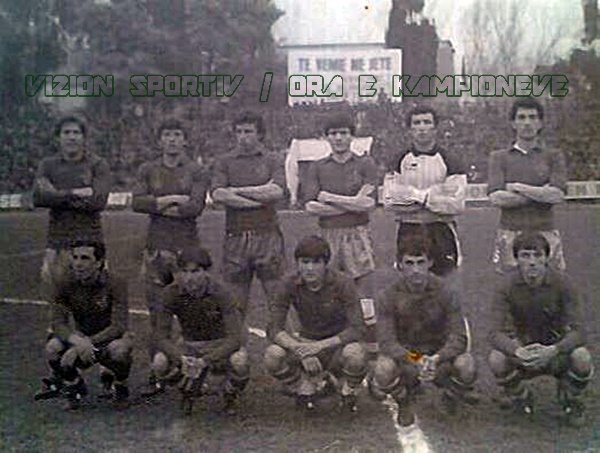
The first half starts with a high tempo and under a balance from both teams who with their efforts want to steal the victory from each other. There is no shortage of occasions to note from both historical rivals. However, the result remains goaless with untouched nets 0-0...
Here is the 44th minute. The most spoken about it! Action of "nentorasve" from the right wing of their attack. Beautiful cross in the center where Kola is located, who excels in headers. He does the same this time without thinking too long and the ball hits the crossbar, its lower part and then on the ground.
Beyond the fatal line or outside it?
Match referee Besnik Kaimi and the winger Lulezim Konci signal for a regular goal. A similar episode would happen in the great final of the World Cup in 1966 between the England and the West Germany, called "phantom goal"!!!
Partizan's goalkeeper Musta, who claims to have seen it clearly, stubbornly protests that the ball has not crossed the fatal line. His teammates do the same.
The lack of technology and VAR throughout the world of football has always given way to unclear decisions by referees and various abuses. Many teams have benefited from the "phantom goal" and have benefited from it just as much. And this would not only be a unique example in Albania but in the whole world where the most popular game of orb is played. With all the continuous protests, the referee has confirmed 1-0 for 17 Nentori team, ending the first half.
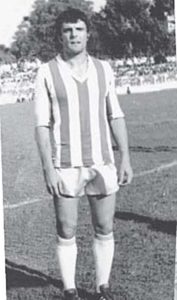
Agustin Kola - the center forward of 17 Nentori
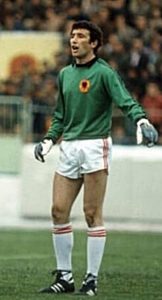
The great Albanian goalkeeper Perlat Musta of Red Team, Partisan
But Musta, who also wears the captain's armband, is not separated from the protest and the debate with the referee until the corridor that leads to the dressing room. Along with Musta is Ahmetaj and a little behind Tomori. Precisely Genci Tomori, perhaps even he himself did not know that he would become a hero and remain long in the memory of his team and the fans that had filled up the stadium steps.
While Musta and the other friends are protesting, the referee Kaimi seems annoyed and pulls out a red card, inside the premises of the building, completely outside the field of play.
For whom ?
It was the first time, in the entire history of Albanian football up to that time, that the referee took out and punished a football player in the corridor with a red card.
Anyway, the players of Partizan enter the dressing room and communicate to their coach Bajko that the referee has drawn the red card, but who exactly is not known yet. Tomori, having seen it clearly, tells coach Bajko that it was for Perlati, and Musta himself claims that he saw a red card, but he was not sure who it was addressed to...
One of the team's management staff addresses the judges' room to confirm the player sentenced with a red card.
Now it is clear.
Musta was punished with a red card in the corridor from the dressing room. The protests have now flared up again.
Noise and potion!!!
For a moment, in the room where Partizan was destined, surprise and silence reign.
How is it possible? Yes, the regulation states that a player can be penalized outside the field in the corridor or in the locker room during the break of the match. Bajko now focuses on what needs to be done in the second half. At the disadvantage of a goal and without a goalkeeper...
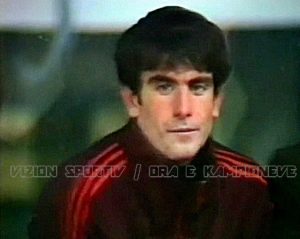
Genci Tomorri, the player who will replace the goalkeeper P. Musta
After hesitating for a few seconds, he addresses Tomori saying "you will stay at the goal"! That's it!
How? Me? Why me?
Bajko, was not even going to answer further, but determined for his decision, invites Tomori to take Musta's jersey. Genc Tomori was unprepared for the new role and did not understand why his professor Bajko was starting from this great responsibility that he was giving him. In such a match the opposite could score several goals.
But what was the truth and why did Bajko appointed Tomorri as goalkeeper while he had already the role of backup goalkeeper? No one could know what the coach Bajko was thinking at that moment, but one thing was known and circulated in the team. Tomori often trained as a goalkeeper together with Musta and even had whole training sessions where he defended the goal while his teammates shot at him. And who would have thought that exactly Genc Tomorri would defend the goal in such an important match and derby?
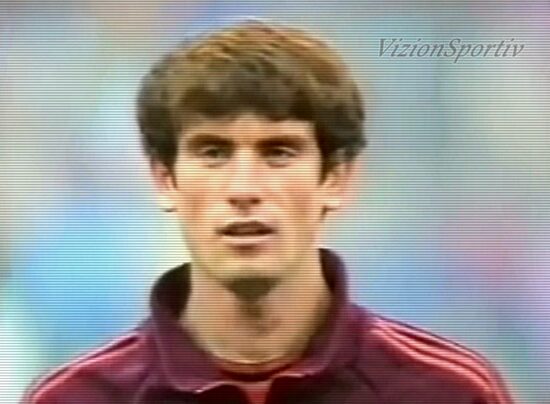
G. Tomorri, is the goal scorer back in 1983 against W. Germany match played in Saarbrucken for the qualification of UEFA Euro `84.[/caption]
While both teams were now heading to the start of the second half, everyone was surprised to see him in the goalkeeper's shirt. The fans in the stands around but also the players of November 17 could not believe their eyes. It was an unexpected, quick replacement, and at that time nothing was even announced about the speaker. Now the players do not hide their optimism to win this match even with a few goals, and laughing, they go straight to the goal protected by the improvised goalkeeper Tomori. Kola shoots but Tomori shoots and deflects the ball out. Minga and Muca try, but again Tomori stops them. Surprisingly, his position and the highly organized defense make the Tiranians nervous because they are not accurate due to the haste. Now it's a Partizan counterattack.

Here Shehu, typical in such actions, quickly avoids the cover of the defense and …….goal!
1-1!
Partizani drew with 10 players and an improvised goalkeeper. However, the opposite players do not stop, minute by minute they turn to the goal of the "new goalkeeper" Tomori. They are nervous and involved in the panic that they were not scoring, they lose their cool by being inaccurate.
Along with them and the fans.
But the gate and the partisan defense is armored. Now Mema tries with a free kick, the master of these standard shots, but Tomori flies and punched the ball into the corner. it can be heard the disappointed cheer of the fans, "uuuuu"!!!
No one could believe their eyes! Mema again has a second free kick. and Tomori says "no" again this time, catching the ball and covering it with his body. Another counterattack by Partizan with another good chance for Shehu, but...
At the end, referee Kaimi's whistle is heard, which ends the 90 minutes and the entire game of a match full of drama and emotions for those who have a strong heart, with equal score 1-1.
After the match, Partizan's position with 10 players and no goalkeeper, and especially with Tomori in goal, received a great echo.
Of course, Tomori became a hero for the fans of Partizani. Never before had it happened that the goal was defended by a player and the team with a 0-1 disadvantage (with the goalkeeper suspended in the corridor) equalized in the second 45 minutes.
This demoralized the players on 17 Nentori, and after this case it will be that S. Mema who will leave football temporarily. In the "Rubrika Sportive", an Albanian Sport Show that was broadcast on Mondays, the film footage "Moviola" showed that the ball had not crossed the line.
Musta was right to be stubborn …….
This will also be the season that Partizan will win the championship title.
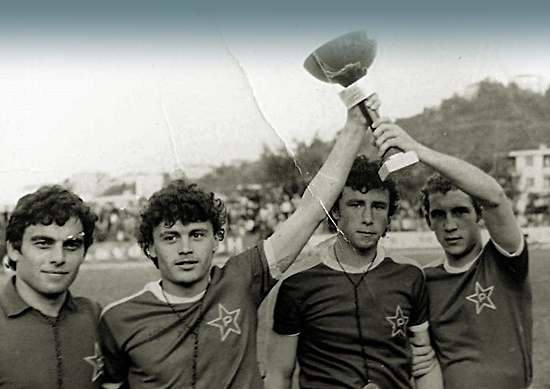
Millo, Kacaci, Ramadani and Alite are holding the National Albanian C hampion` Cup of the season 1986-1987
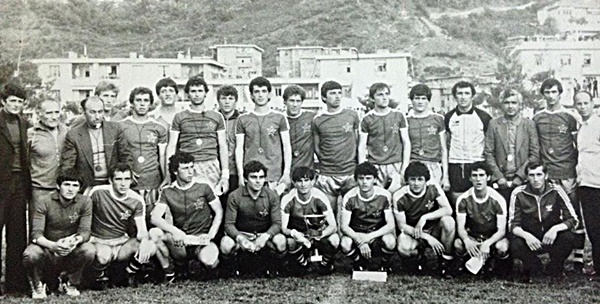
While for Tomori, the second game as a goalkeeper would not be long, even in the following September of 1987, the team as the defending champion and destined to become great as it was before the 80s, would travel in Lisbon in the framework of the Champions Cup, in a plant with a capacity of nearly 100,000 seats, where it would face the Portuguese champion Benfica, which that season would reach the final of this trophy and lose it on penalties to PSV Eindhoven in the Netherlands.
It was the "dark night of Lisbon", a judgment of one side that leaves much to be desired, followed by unjust decisions after Partizan's return to Albania, which cut off his wings to return to the top flight of Albanian football. But this is another story that we will talk about in a separate article.
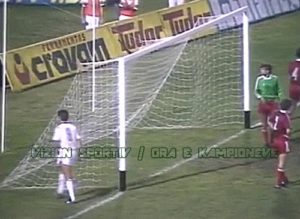
Aspects from the match Benfica - Partizani, where Tomorri
plays the second match as goalkeeper!
By Pjerin Bj - May 2024
(C) Copyright
______________________________
Sports Vision + / The Hour of the Champions in activity since 2013
References: Personal collection of the NewSpaper "Sporti Popullor" over the years / Various online articles from sports portals as well as footballdatabase.eu

.jpeg)


